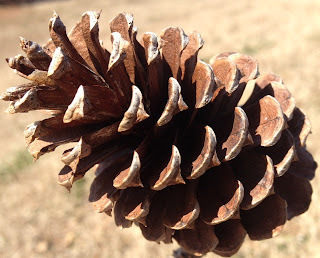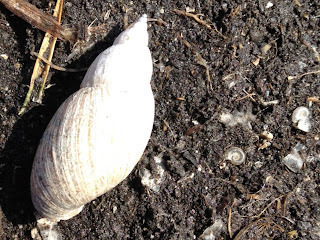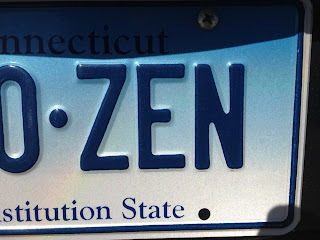war
Of Kings and Wars and Gardens
Long ago there was a season for war. An ancient text about one of the kings of Israel tells us this:
"It happened in the spring of the year, at the time when kings go out to battle, that David sent Joab and his servants with him, and all Israel; and they destroyed the people of Ammon and besieged Rabbah. But David remained at Jerusalem."
Two points stand out to me:
1) When ancient kings went to war, they did so in the spring; and
2) King David didn't go this time.
The first point probably has to do with agriculture. An agrarian society like David's probably did not have much of a standing army. Men were free to fight in between the time for sowing seeds and harvest. Wars could be launched when the seeds were in the ground, and should end before harvest if the nation is not to starve.
The second point is the reason for the story. And it is a reminder that sometimes kings have big enough armies that they can send men to fight for them. In this case, because David stayed behind, he wound up taking the wife of one of his soldiers. When she got pregnant, David had the man killed.
It's foolish to think we can somehow go back to how things were even before David's time, when kings themselves would have to work for food.
But we can at least dream of kings who work their own gardens with enough care that they respect rather than covet the gardens and spouses of others.
Martin Luther on Liberal Education
-- Martin Luther, “To the Councilmen of All Cities in Germany that They Establish and Maintain Christian Schools,” in AE 45:357 (1524) (emphasis added) A full translation of the letter is available here.
Not The Weapons But What They Defend
"My grandfather was a career military officer, and I admired him deeply for it. As a child, I would try to imagine the battles he was in, and I thought of him as a hero. As I grew older, I became more aware of what he had given up for us, and what that might have cost him...."Read it all here.
Against Grading
We are sick with love of enumeration. We've discovered that counting things over time is a powerful way to predict what will happen next. And now we are mantic-obsessives, (that's not a typo) that is, people obsessed with prediction, with foresight that will rule the uncertainty of our lives.
Look: that's not such a bad thing, in a way. What I'm describing is the root and trunk of science: quantification and statistical analysis is the beating heart of our understanding of scientific laws, which are about predictive inference. Understanding of the laws of nature can save lives, and make water clean, and heal some deep wounds. Science is wonderful, and no liberal education should stint in its science offerings.
But if we're not careful - if we divorce science and enumeration from other ways of regarding value - that can make some pretty big holes in the world, too. (Whenever I hear someone say that religion is the cause of human suffering, I think "What about chemistry?" Both religion and chemistry can be deployed to change lives, and to change them dramatically. Or to end them suddenly.)
Likewise enumeration. The counting of things can give us great power to rule our own futures. It can also give us great power to rule the futures of others, and not always in kind ways. One real danger of learning to count things is that we find it too easy to shift from saying "It's hard to count X" to saying "X doesn't count."
Our quantifimania, for instance, has half of us (no, I didn't count, I'm speaking figuratively) believing that good teaching can be measured by test scores. Or that someone's intelligence can be reduced to a simple number. Or that a kid's giftedness, or ability to learn, or likelihood of living a creative and thoughtful life can be simply reduced to a GPA or a standardized test score.
Years ago, when I was thinking about beginning my graduate studies in Philosophy, a professor I knew suggested I prepare for my Ph.D. by attending St John's College's "Great Books" program. I looked over the reading list and realized that even if it didn't get me into a Ph.D. program, it would be worth it for its own sake.
As an undergraduate at an elite liberal arts college in the northeast, I was continually reminded that little mattered more than my grades. I was the sort of student who earned good grades with little effort, so it was natural to begin to believe that what mattered most came without struggle. As a result - I realize this now, in hindsight - I bypassed much of the opportunity my college offered me by studying only what my classes required of me.
This all changed in my first term at St John's, when I wrote a seminar paper on Aristotle. My tutor Matt Davis returned it to me without a grade on it. Instead, it was covered with marginal comments, underlining, and a paragraph of reflection and response at the end. But again, no grade. "How did I do?" I asked him. "Have a look at what I wrote," he replied. Sure enough, he told me how I did: here were the things that were strong; here were the gaps in my argument. No quantification, just explanation.
I wanted a grade because I'd been habituated to thinking of the grade as the way of judging the merit of my work. St John's decision to refuse to give grades is an intentional and hard-fought resistance to that way of thinking.
At the end of the term, each of my tutors gave me one, two, or even three pages of handwritten comments on my strengths and weaknesses as a student. But once again, no grades. Nothing to distract me from reading their comments, nothing that would allow me to measure the worth of their comments other than the comments themselves. And nothing to make me think: "Well, that's done."
As a result, I stopped thinking about grades and started thinking about ideas, and texts, and writing. I started caring more about correcting my ignorance than about concealing it from my peers and teachers. And I stopped thinking about learning as something that happens in fifteen-week segments. Learning was no longer something that begins here and ends there. Learning was now a river I step into, and in which I may swim, and bathe, and drink for as long as I am able. And if I step out, it remains there, ever flowing, for me to return to.
It was only then that I realized just how bored I had been in school. I had been bored since my childhood, because I had to show up, had to perform tasks, in order to get these lofty numbers that weighed so heavily and meant so little to me personally.
I've known many students who are bright but who don't do well on standardized tests. I've known many others who don't do well on any test at all, and I've no doubt that much of it has to do with anxiety over the way their work will be reduced to a number, one they feel is so disconnected from what they know. As a teacher I feel I'm constantly fighting to get my students to stop worrying about their grades, even while I'm required to assign grades to their work. Grades are, in my opinion, one of the worst things to happen to education. This is not to say I'm against evaluation or helpful feedback. I'm all for them, in fact. Which is why I'm so opposed to the damnable, lazy practice of reducing that evaluation to what can be easily counted.
The ancients tell us that King David sinned against God by counting his fighting men. (Here, too.) I think the sin was not the counting, but the way his counting became a basis for policy, and so for value. When we weigh our forces before going to war, the question shifts from "Is this a war worth fighting?" to "Can I win?" Both of those are important questions, but God save us from ever making the latter so important that we think of the former as a question that doesn't count. That kind of thinking turns people into instruments of war rather than free individuals; people become pawns, tools of policy, and they become as expendable as they are enumerable. When we dare to quantify our gains and losses in terms of numbers of human lives expended, we have already lost something important that may be very hard to regain.
And God save us, likewise, from thinking of our lives as things to be measured, and measured against others' lives. God save us from thinking of meaningful work as something to be done against a time clock, from thinking of wealth as something to be measured in numbers rather than in a richness of life. And God save us teachers and citizens from thinking that the worth of a woman or a man can easily be measured by the grades they have earned, or that the predictions we may make on the basis of those grades should have the power of prophecy.
So, How's The Sabbatical Going?
Sabbaticals and Long Service Leaves
 |
| Sabbaticals can be seasons of letting dry husks bear new life. |
Most jobs in the United States don't offer sabbaticals, but I'm fortunate enough to have one that does. Sometimes my kids chide me for choosing a job with relatively low pay, but self-regulated time is something money can't easily buy. I think I chose my career pretty well.
I say "self-regulated time" because my sabbatical isn't early retirement or a long vacation. My job as a college professor has three basic components: teaching, scholarship, and service. A sabbatical frees me from the first of those components, and from parts of the third. More precisely, it frees me from the daily tasks of teaching and service, but I expect that at the end of this year I will be a better teacher because I've had time to do research and to tear down and rebuild some of my classes. And any college capable of taking the long view knows that faculty who take sabbaticals can render better service over the long haul.
What I've been doing
To the casual observer it probably looks like I've spent a lot of time in coffee shops and airports, and not much else. For the last three years I've devoted myself to teaching and service, giving only a little of my time to scholarship. So when I began my sabbatical my scholarly life felt like deep waters pent up behind a strained dam. Over the last few years I've sketched out five books and seven articles and book chapters. Over my sabbatical I hoped to get maybe one book and a couple of articles done. That may not sound like much, but it's fairly ambitious, given how much time it takes to do the research and to write well.
Since my job description breaks down into the three parts I mentioned above, let me say a few words about what I've been doing this year in each of those areas.
Writing: As for academic writing, so far, I've completed one book (on brook trout), and made significant progress on two others (both on the philosophy of religion). Once I get them done, books four and five are ready to go, too. I've submitted one book chapter for someone else's book, and I'm about to submit another. I've written a few book reviews for popular and scholarly journals, too. Last week I gave a lecture at the College of William and Mary on war and evil. Now I'm preparing that lecture for publication as a journal article. By the time this sabbatical is over, I hope to have at least one book under contract and two more articles sent off for review. I've also done some more popular writing, including a couple of articles on virtue ethics in the Chronicle of Higher Education's Chronicle Review - one on guns and one on the ethics of drones or UAVs. Perhaps most importantly, I've been writing every day. As you can see, I've been trying to write quickly here on this blog a couple of times a week, and I've been writing in a lot of other places as well. Like any other skill, it comes more fluidly with practice.
 | ||
| Snail shells grow by slow accumulation, as habits do. |
Service: Even though I'm away from campus, my heart is still there. Everything I do as a professor winds up leaning back towards the classroom, which means towards my students. Nothing I do matters more than the people I do it with and for, I think. I must have written sixty letters of recommendation for students this year (which is more time-intensive than one might think). Sabbatical has also given me the chance to help some colleagues here and at other universities. I've been helping half a dozen friends who teach Classics, Philosophy, and Biology at other universities by reading and commenting on drafts of their essays and books. And I've done a lot of "double-blind" reviewing for six or seven academic publishers who want advice on whether to publish certain books or journal articles. Best of all has been time to collaborate with colleagues in far-off places, corresponding with professors and graduate students around the world about philosophy, ecology, Scriptural Reasoning, Henry Bugbee, Charles Peirce, C.S. Lewis, and other matters close to my heart. I list this as "service" but I could just as well call it "ways I've learned from other people far away."
 |
| The license plate on the rental car I had at a recent conference. |
Yes. The word "sabbatical" has its roots in a Hebrew word, shabbath, meaning "to rest." It would be a shame not to use the time to get some rest. Last summer I spent two weeks in a writing retreat sponsored by Oregon State at their Shotpouch Creek Cabin with my friend and co-author Matthew Dickerson. We were working, but what restful work it can be to live, think, and write quietly with a friend. We spent half of each day writing, and the other half talking, hiking, fishing, wading in the ocean. We borrowed some hymnals from an Episcopal church in Eugene and spent part of each evening singing as the sun declined behind the coastal range.
On my way to Oregon, I drove my sons to the coast last summer to look at colleges, to go whale-watching, and to watch some professional soccer matches. When I got home to Sioux Falls, I joined a gym and I became my son's rec league soccer coach. This is his last year of living at home with us, and I can't tell you how grateful I am to have this time with him before adulthood takes him off on the next leg of his life's journey. Despite all the work, and travel, and writing, I've had more time with my wife and my kids, and more time for self-care. I feel much healthier and fitter now than I did a year ago. I have a feeling my family is better off for that, too.
I wish everyone, regardless of their line of work, could have an experience like this every few years. It might remind us all what matters. It's expensive, I know. I took a hefty pay cut from an already modest salary to have this year off, and thankfully our savings have been enough to get us through. (And writing and lecturing makes me a few extra ducats to send to my daughter in college from time to time or to spend on my boys at home.)
No doubt some people will read this and wonder why my college is willing to pay me anything at all when I'm not showing up to work. The answer is that some colleges still take the long view. You have to put aside your monthly planner and get a calendar that measures time and value "not by the times but by the eternities" (pace Thoreau), that looks down the years the way a carpenter holds a plank to her eye and looks down the full length of the board rather than seeing only the grain of what is nearest. Money has been spent on me this year by people who thought it worthwhile to let me stretch from my cramped pose. They have let me drink from distant streams so that I can come back nourished not just by the Big Sioux and the Missouri but by the waters of Oregon and New York and Virginia - and in some sense by the Hippocrene itself.
So that's what I've been doing. I'm sorry I haven't been around campus much. In the long run, what I've been doing should make my return to campus a very good one indeed. I can't wait to tell you more about what I've learned this year once I return.
Empire and Total War
Of course I don't know, but it makes me think of a passage in the prophet Samuel. King David sends his army to fight, "in the season when kings go off to war," but he does not join them. He stays behind and winds up having an affair with a married woman, then arranging for her husband to die on the front lines to cover up David's dalliance. (By the way, David is remembered as one of the good kings.)
The bold passage above tells us something about the history of warfare: small states cannot afford total war. They can only go to war when their crops are in the ground, and must return before the crops are to be harvested. Not so with empires. Large states can draw soldiers from many places and so can afford to field an army year-round.
 |
| Sometimes you're just in the right place to capture the photo. The Blue Angels soar past Walmart. |
While King David's state was small enough that it was still bound by the growing season, he was enjoying a period when his state had grown large enough that he could send his troops out without joining them, without committing himself to sharing in their triumphs and losses. And this detachment of the leadership from the fighting forces led to deep tragedy, and even to a kind of human sacrifice, wherein the king was willing to sacrifice one of his men to cover up the king's own error.
So while I don't know why the suicide rate is increasing right now, I am not surprised to learn that our troops are suffering. We commit them to long tours of duty, not just for part of a growing season but for years on end with only short rests. It is lamentable that they are often so far from us it is hard to even imagine what they endure, much less to share in it with them.
See my earlier post on the cost of war here.
The Cost of War
My grandfather wore a .45 caliber pistol at his hip when he fought in the Pacific theater in WWII. The trigger guard was shot off. He kept that pistol until he died. It was a kind of reverse sacrament, an outward and visible sign of an inward, invisible wound, of a bullet that nearly ended his life, of the bullets and bombs that ended so many others. To me, he was a hero, but I wonder if he was ever able to see himself that way.
As a young child I asked him, in wonder, if he had ever seen a man die in war. I did not know what I was doing. He was a good man, and a kind one, but that question drew from him the most anger I ever saw in his eyes or heard in his voice. "Of course I have!" he shouted. He got up from his chair and left the room, leaving me with my firmest impression of war, of anger and pain stored up for thirty years, like the shrapnel in his back that set off airport metal detectors until his death in the late 1980s.
I sat next to Bob at a Christmas party ten years ago. On his other side sat another veteran of the Great War. They huddled close and whispered loudly, as old men do, thinking I could not hear. I looked away to preserve their imagined secrecy, but could not help hearing bits of the stories they could speak of only with one another. The war was sixty years behind them, but their voices still trembled as they unburdened themselves in that moment only brothers in arms can share. I recall Bob saying this:
"...I checked on my men, and they were fine. I turned and began to walk away when the shell fell, right between them in their machine gun nest. All three were killed instantly. I had been speaking to them just a moment before, and now they were gone...." Both men were silent for a while after that. The men were gone, but their deaths lived on and on in Bob's dreams.
Steinbeck and Greene On Respect For Enemies
“Some years ago my neighbor was Charles Erskine Scott Wood, who wrote Heavenly Discourse. He was a very old man when I knew him, but as a young lieutenant just out of military academy he had been assigned to General Miles and he served in the Chief Joseph campaign. His memory of it was very clear and very sad. He said it was one of the most gallant retreats in all history. Chief Joseph and the Nez Percés with squaws and children, dogs, and all their possessions, retreated under heavy fire for over a thousand miles, trying to escape to Canada. Wood said they fought every step of the way against odds until finally they were surrounded by the cavalry under General Miles and the large part of them wiped out. It was the saddest duty he had ever performed, Wood said, and he had never lost his respect for the fighting qualities of the Nez Percés. ‘If they hadn’t had their families with them we could never have caught them,” he said. “And if we had been evenly matched in men and weapons, we couldn’t have beaten them. They were men,” he said, “real men.”And here's Greene:
“Trouin said, ‘Today’s affair—that is not the worst for someone like myself. Over the village they could have shot us down. Our risk was as great as theirs. What I detest is napalm bombing. From three thousand feet, in safety.’ He made a hopeless gesture. ‘You see the forest catching fire. God knows what you would see from the ground. The poor devils are burned alive, the flames go over them like water. They are wet through with fire.’ He said with anger against a whole world that didn’t understand, ‘I’m not fighting a colonial war. Do you think I’d do these things for the planters of Terre Rouge? I’d rather be court-martialled. We are fighting all of your wars, but you leave us the guilt.”These are things that I, who have never had to fight a war, can only gaze at from afar, with wonder, and sadness, and gratitude.
John Steinbeck, Travels With Charley In Search Of America, (New York: Penguin, 1983) 159-160.
Graham Greene, The Quiet American, (New York: Modern Library, 1992) 196-197.